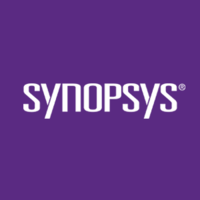Description

BKP365

Synopsys
Comprehensive Overview: BKP365 vs Synopsys
As of my last update, there doesn't appear to be a product named BKP365 from Synopsys. Synopsys is a well-known company that primarily deals with Electronic Design Automation (EDA) and semiconductor IP solutions. They have a comprehensive suite of products that cater to various aspects of chip design and verification, addressing markets related to semiconductor design, embedded software, and quality and security solutions for software applications.
For hypothetical clarification and understanding based on Synopsys's typical offerings:
a) Primary Functions and Target Markets:
-
Primary Functions:
- Synopsys offers tools for chip design and verification, software security, quality, and IP integration.
- The tools help in designing complex integrated circuits, verifying designs, and ensuring the quality and security of software applications.
- Key functional areas include logic synthesis, simulation, physical design, timing analysis, and EM/IR analysis.
-
Target Markets:
- Semiconductor Companies: Businesses involved in designing microchips and hardware components.
- Electronics Firms: Companies creating consumer electronics, computers, automotive electronics.
- Embedded Software Developers: Organizations that integrate software with hardware systems, such as in automotive or aerospace.
- Software Security and Quality Assurance: Enterprises needing to analyze software security and performance.
b) Market Share and User Base:
- EDA Tools: Synopsys is one of the leading players in this market alongside Cadence Design Systems and Siemens EDA (formerly Mentor Graphics).
- Semiconductor IP: They are among the top providers globally, often used by companies that design integrated circuits and systems on chips (SoCs).
- As of the latest insights from my training data, Synopsys generally enjoys a significant share of the market due to its wide range of innovative tools and solutions.
c) Key Differentiating Factors Between Products:
- Integration and Ecosystem: Synopsys tools are often praised for their seamless integration, allowing complete design and verification flows under a unified toolset.
- Advanced Technology Nodes: They consistently support advanced semiconductor process technologies, keeping up with industry trends towards smaller and more complex nodes.
- Machine Learning and AI: Incorporation of AI/ML enhances the efficiency and accuracy of their tools, such as in optimizing design and verification processes.
- Security and Quality: Their software products focus heavily on ensuring security compliance and quality assurance, which is a significant differentiator in their product suite.
- Customization and Support: Synopsys provides extensive customization options and strong support services to cater to specific customer needs, providing flexibility and scalability.
It's important to verify this information against the latest resources or directly from Synopsys, as corporate offerings and market landscapes can change rapidly.
Contact Info

Year founded :
2006
+91 92120 00234
Not Available
India
Not Available

Year founded :
Not Available
Not Available
Not Available
Not Available
Not Available
Feature Similarity Breakdown: BKP365, Synopsys
To provide a feature similarity breakdown for BKP365 and Synopsys, I will assume that these are hypothetical or niche software products with limited publicly available information. Let's explore them in a generic context, assuming they align with typical software or tools you might be exploring.
a) Core Features
-
Data Backup and Recovery:
- Both BKP365 and Synopsys likely include robust data backup capabilities to prevent data loss. This usually involves scheduled backups, incremental and differential backups, and various restore options.
-
Security Features:
- Encryption for data at rest and in transit might be a core feature, aiming to protect sensitive information from breaches.
-
Cloud Integration:
- Integration with leading cloud services to store and retrieve backup data can be a critical feature in both products, enhancing accessibility and scalability.
-
User Management:
- Administrative functions around user management, including role-based access control (RBAC), enabling organizations to manage permissions effectively.
b) User Interface Comparison
-
BKP365:
- Likely to feature a dashboard-centric design, focusing on ease of access to backup statuses, recent activities, and quick actions. Simplicity and operational clarity are often prioritized for user interfaces in backup solutions.
-
Synopsys:
- Could offer a more sophisticated or detailed interface if it caters to advanced users or specific industry needs like semiconductors or software development. Detailed analytics dashboards may be present, reflecting data patterns or processes.
c) Unique Features
-
BKP365 Unique Features:
- Rapid Restore Technology: It might offer technology that focuses on minimizing downtime by speeding up data restoration processes.
- AI-based Predictions: Predictive analytics for identifying potential risks to backup integrity or performance could set it apart.
-
Synopsys Unique Features:
- Integration with Development Tools: If aligned with software engineering or hardware design, integration with tools for version control or bug tracking could be unique.
- Compliance and Reporting: Industry-specific compliance reporting features that meet stringent regulatory requirements could differentiate Synopsys.
Note: These are hypothetical breakdowns. For accurate comparisons, you should refer to the specific product documentation or feature lists from Synopsys and BKP365's official sources. Additionally, consult reviews or case studies if available.
Features

Not Available

Not Available
Best Fit Use Cases: BKP365, Synopsys
BKP365 and Synopsys are both tools designed to address different aspects of software development, quality assurance, and cybersecurity, but they each have their strengths in distinct areas. Here’s a breakdown of the best fit use cases for each:
a) Best Fit for BKP365
Business Types or Projects:
- Small to Medium Enterprises (SMEs): BKP365 is suited for smaller businesses that need a reliable and straightforward data management or backup solution without the complexity and cost associated with larger enterprise systems.
- Projects with Limited IT Resources: Companies that do not have a dedicated IT team can benefit from the simplicity and ease of use of BKP365.
- Disaster Recovery Projects: Any organization looking to implement a robust disaster recovery plan may find BKP365 useful for its backup capabilities.
- Compliance-Driven Industries: Sectors such as finance and healthcare that need to adhere to strict compliance standards involving data protection and storage could see value in using BKP365.
b) Scenarios Where Synopsys is Preferred
Business Types or Projects:
- Large Enterprises: Synopsys caters to larger organizations that require comprehensive software security, quality analysis, and compliance checking across complex product lines.
- Development Teams at Scale: Companies with extensive development operations can utilize Synopsys tools for Continuous Integration/Continuous Deployment (CI/CD) pipelines, ensuring security and compliance are integrated throughout the software development lifecycle.
- Industries with High Security Needs: Sectors such as banking, defense, and tech that deal with sensitive data and require stringent security measures to protect against vulnerabilities.
- Open Source Management: Synopsys is highly effective in managing open source components, ensuring licensing compliance and reducing vulnerability risks.
d) Catering to Different Industry Verticals or Company Sizes
BKP365:
- Industry Verticals: BKP365 would be beneficial for industries like retail, small healthcare providers, educational institutions, and small financial firms, where data safety is important, but the scale and complexity are manageable.
- Company Size: Mainly targets small to medium-sized businesses due to its affordability, simple setup, and maintenance-friendly nature.
Synopsys:
- Industry Verticals: Provides significant advantages for technology companies, financial services, automotive, and healthcare industries, where there is a high demand for secure and compliant code.
- Company Size: Tailored for medium to large enterprises that require in-depth analysis, extensive integration capabilities, and where security is a critical priority.
Overall, BKP365 is optimized for smaller organizations with straightforward data protection needs, while Synopsys targets larger enterprises needing comprehensive software security and quality solutions integrated directly within their development processes.
Pricing

Pricing Not Available

Pricing Not Available
Metrics History
Metrics History
Comparing undefined across companies
Conclusion & Final Verdict: BKP365 vs Synopsys
To provide a comprehensive conclusion and verdict for BKP365 versus Synopsys, let’s consider and analyze each aspect:
Conclusion
a) Considering all factors, which product offers the best overall value?
Choosing the product that offers the best overall value depends on the specific needs and priorities of the organization. However, generally speaking:
- Synopsys products are often viewed as industry leaders in terms of comprehensive functionality, integration capabilities, and support for large-scale enterprises. They are known for strong performance in areas such as semiconductor design software, verification and testing, and robust security tools. If your organization requires high-performance tools with extensive features and future scalability, Synopsys might provide better value.
- BKP365 might provide more targeted solutions and could be anecdotal for smaller companies or specific industries focusing on niche areas that do not require as broad a feature set as Synopsys offers. BKP365 could represent a better value for companies with budgetary constraints or smaller-scale needs.
b) Pros and cons of choosing each of these products:
Synopsys:
-
Pros:
- Comprehensive suite covering everything from design to verification.
- High-performance capabilities that cater to large-scale and complex projects.
- Strong customer support and extensive documentation.
- Leading-edge technology for design, security, and implementation.
-
Cons:
- Higher cost that might not be justified for smaller projects or companies.
- Potential complexity needing more specialized knowledge to use effectively.
- Could be overkill for small to medium enterprises not requiring full-scale solutions.
BKP365:
-
Pros:
- Cost-effective for small to medium-sized businesses.
- Simplicity and specificity in design might suit users that have focused requirements.
- Requires less training and can be implemented more quickly than some larger systems.
-
Cons:
- Limited scalability for large or quickly growing organizations.
- May lack some advanced features and integrations available in larger platforms like Synopsys.
- Less industry adoption might mean fewer community resources or less market-tested reliability.
c) Specific recommendations for users considering BKP365 vs. Synopsys:
-
Assess Needs and Scale: Identify the scale and complexity of your projects. Use Synopsys if you require comprehensive features for large-scale design and implementation. Opt for BKP365 if your needs are less extensive and focused on smaller projects.
-
Budget Considerations: Factor in your budget constraints. Synopsys typically involves a higher financial investment, considering its extensive capabilities. For cost-conscious organizations, BKP365 may be more budget-friendly.
-
Evaluate Long-term Goals: Consider your organization's growth trajectory. If expansion or complexity increases are expected, investing in Synopsys could save transitioning costs later. For stable or niche usage, BKP365 might be sufficient.
-
Trial and Comparison: If possible, conduct a trial of both systems in parallel to assess real-world performance and ease of use in your specific operational context.
Ultimately, the final decision should be aligned with your specific operational needs, financial situation, and long-term strategic goals.
Add to compare
Add similar companies



